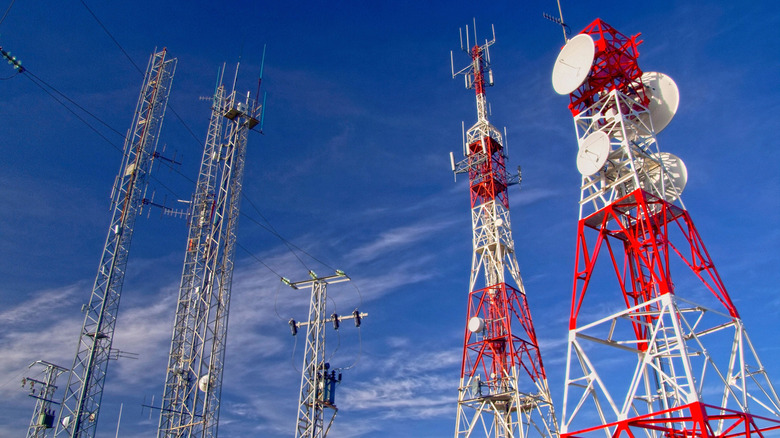Trump Is Right To Be Worried About Chinese Spying - But A Government-Run 5G Network Isn't The Solution
This morning, we woke up to news of a leaked plan you'd never expect from a Republican White House: a blueprint for a nationalized cell network.
According to Axios, which got the scoop on a leaked presentation, someone within the National Security Council is scared about the prospect of 5G networks being built with Chinese-made componentry, and the proposed solution is for the government to build its own nationalized 5G network, which will then be leased out to mobile carriers like Verizon and T-Mobile.
The presentation notes that right now Huawei and ZTE, two Chinese telecommunications companies with significant Chinese ties, are gobbling up the market for commercial 5G routing and radio technology. Thanks to "preferential pricing" and advantages in the Chinese domestic market, the two companies are able to outdo Ericsson and Nokia, the only two Western networking companies working on 5G radios. With subsidies from the Chinese government, it's very possible that Huawei and ZTE will become the dominant suppliers of 5G networking equipment.
Why does that matter? It's difficult to prove from public information, but warnings have been issued in the past by the UK and US governments about the role that Huawei and ZTE might play in facilitating Chinese government spying. A congressional report released in 2012 suggested that Huawei and ZTE "open the door" for Chinese spying, and British members of parliament probed the relationship between British Telecom and Huawei over fears about spying. Just last month, the US intelligence community pressured AT&T into stopping a deal that would have sold Huawei's phones through the network, thanks to security concerns.
This isn't some international conspiracy, either. A report three days ago from Le Monde Afrique detailed how the Chinese government donated a $200 million headquarters to the African Union, but then rigged the building with microphones and backdoored computers to spy on everything that went on in the building:
In January 2017, the small computer unit of the African Union discovered that its servers were strangely saturated between midnight and 2 am. The offices were empty, the activity was dormant, but data transfers were at a peak. A zealous computer scientist looked into this anomaly and realized that the internal data of the AU were massively diverted. Every night, the secrets of this institution, according to several internal sources, found themselves stored more than 8,000 km from Addis Ababa, on mysterious servers hosted somewhere in Shanghai, the Chinese megacity.
Four specialists from Algeria , one of the institution's biggest financial contributors, and Ethiopian cybersecurity experts inspected the rooms and flushed out microphones placed under the desks and walls .
In other words, the National Security Council is right to be concerned about the security of America's telecommunications networks, and now is a particularly good time to examine things. Wireless companies are investing heavily in new 5G infrastructure, and thanks to 5G, wireless is going to become a bigger and bigger part of the nation's access to the internet. Fixed wireless 5G increasingly looks like a feasible alternative to wired internet for homes and businesses, and increasingly sensitive information will likely be transmitted through wireless networks.
But while the NSC is right to be worried about wireless security, building a nationalized 5G network is still a terrible plan. 5G network development is already well underway; trial networks are already up and running, contracts have been signed by wireless providers for the infrastructure, and any government contracts would take years to tender, and even longer to build out.
More importantly, building a brand-new network from scratch would be far more expensive than the existing operators' plans to upgrade to 5G. For the first few years of 5G rollout, the existing 4G LTE network will be a key component. The first 5G specification explicitly calls for integration with existing 4G networks, which the wireless operators have, but the US government doesn't.
Then there's the fact that one nationalized wireless network would likely destroy competition and undo years of progress that have made wireless networks cheaper and more consumer-friendly than ever before. Right now, three of the four wireless operators (AT&T, Verizon, and T-Mobile) have good, nationwide networks that force all three to compete on features — like the unlimited plans that have rolled out across all networks in the last 12 months. Thanks to 5G, that competition might even mean fast rural broadband and competition for home internet and TV, something that's sorely lacking in the US right now.
Thankfully, it seems that the plan Axios saw was just a proposal. Administration officials have pushed back against Axios's report off-the-record, and FCC chairman Ajit Pai has issued a statement firmly opposed to the plan. Let's just hope that the focus on security stays, while the prospect of a nationalized network stay dead.
